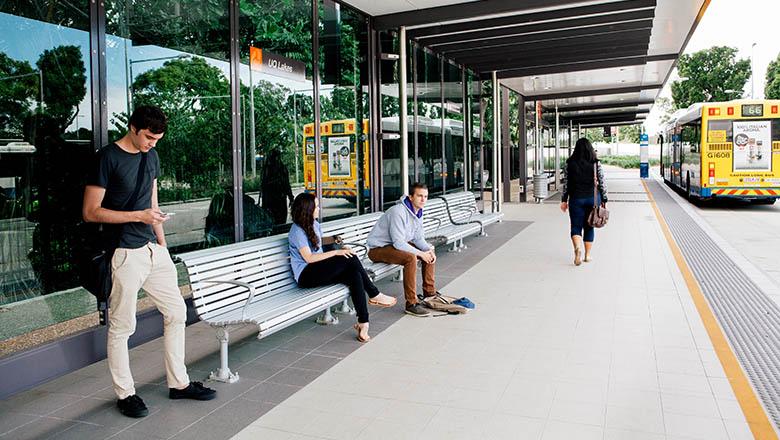Going back to uni is the most significant financial decision you’ve made since telling your kids the truth about the Tooth Fairy. (Don’t deny it – those $2 coins were starting to add up.) And while statistics suggest it’ll be worth it when you graduate, you still need to get by until then.
So, how do you keep yourself and your family afloat while studying a master’s degree or other postgraduate program? Let’s explore your options as we talk about financing postgraduate study.
Take a shortcut:
- Postgraduate bursaries and grants
- Postgraduate scholarships
- Credit transfer
- Making plans with your current employer
- Claiming it on tax
- Freelancing or gig-economy work
- Reducing living costs
Postgraduate bursaries and grants
Many universities offer postgraduate bursaries for their alumni. Start by checking into this with your previous uni (assuming you had a positive undergrad experience there, of course – don’t go back to a bad ex).
Some postgraduate grants are also available via the Department of Education, Skills and Employment in the form of the Research Training Program (RTP). These research block grants are available to both domestic and international students enrolling in higher degrees by research (i.e. research doctorates and research master’s degrees).
An RTP postgraduate bursary can support you with your:
- tuition fees
- living costs
- research expenses.
It’s also worth asking your uni about any postgraduate grants and bursaries available to you while studying. For example, UQ provides a range of financial support options to assist with relevant extra-curricular activities (like international exchanges, short-term programs, and volunteering).

Annika Krueger is using her RTP postgraduate scholarship to help fund her PhD research in the UQ Diamantina Institute
Postgraduate scholarships
Most universities, including UQ, offer a range of scholarships to help students finance postgraduate study. This is because we recognise the importance and value of postgrad study, but we also understand that dropping everything to come back to uni isn’t always financially feasible.
Credit transfer or recognition of prior learning
If you’ve completed relevant units in the past, credit transfer could help you reduce the length (and cost) of your postgraduate study. Speak to your uni to find out how to:
- determine whether your prior learning is creditable
- provide the correct evidence of your prior learning
- apply it towards your program.
This is only an option for a few postgrads, but make sure you consider it. Knocking even a single unit off your program could make a significant difference for financing your postgraduate study.
Assistance or adjustments with your current employer
Nobody* ever got fired for asking their boss to help fund their postgrad course. In fact, some organisations are quite generous when it comes to supporting their employees with further education – especially if you can show how your program will make you more valuable to the company.
*Nobody we know of.
Some businesses that generally have good reputations for offering tuition reimbursements include:
- Amazon
- Apple
- Boeing
- BP
- Deloitte
- Disney
- Ford
- Intel
- Proctor and Gamble
- UPS.
Speak with your employer or check your employee handbook to see what options might be available to you.
Even if funding isn’t an option, you may not want to cut ties with your work just yet. Chat with your manager to see if there’s a way to temporarily rearrange or reduce your hours. This could save you the hassle of looking for a new casual or part-time job.
Claiming it on tax
If your postgrad program is directly related to your current work (and you continue working while you study), you may be able to claim your tuition fees and other education expenses as tax deductions.
This might not help your bank account right away, but it could lead to a nice bonus at tax return time. Visit the ATO website for more details.
Freelancing or gig-economy work

Casual or part-time work might not directly impact your career or help with your study. But every dollar is a little less stress off your mind about paying the bills (and a little more stress you can put towards your coursework instead).
Freelancing could be the way to go if you’ve got highly marketable skills such as:
- accounting / bookkeeping
- content writing / copywriting
- data analysis
- editing / proofreading
- graphic design
- marketing / consulting
- search engine optimisation (SEO)
- social media marketing
- translation
- video editing / animation
- web development.
Otherwise, the gig economy is ready to welcome you with open arms.
Sure, delivering food or taxiing passengers might not be the most glamorous work. Completing market surveys or becoming a mystery shopper may not pay anything close to the job you’ll get after you graduate. And maybe you never planned to return to waiting bars, making coffees, entering data or doing odd jobs.
But the important thing is that you can make ends meet with a flexible job that fits around your study schedule.
Plus, when you’re spending most of your time on research or coursework, it can sometimes be a relief to have a part-time job that doesn’t require such intensive thinking.
As a postgrad, you’ve already got expertise in your field, so you might consider working as a private tutor for undergraduates. You could also approach your professors to see if they have any teaching or research assistant roles available.
Reducing your living costs

Look, putting the kids up for adoption isn’t an option (probably). But there are plenty of other ways you can manage your household budget while you study.
Here are 10 top tips for financing postgraduate study without sacrificing your lifestyle:
- Take every possible advantage of your student card (never hesitate to ask if there’s a discount). Change to a student plan for all subscriptions where possible.
- Download PDF copies, borrow from the library or buy second-hand textbooks whenever you can (e.g. check out UQU’s Secondhand Texts & Stationery).
- Update your budgeting app or start using one if you don’t already (check out Finder, Frollo, or the budgeting features in your bank's app).
- Get in the habit of pre-planning your shopping list – and sticking to it. Make the switch to house brands and pay attention to supermarket sales.
- Prepare meals in bulk and make your morning coffee at home.
- Calculate the least expensive commute between home and uni. Cycling could save you petrol money and help you stay in shape. Or catching the bus home while listening to a podcast might give you an ideal chance to decompress after a day on campus.
- Put a cap on your social events and look for cheaper alternatives (e.g. a BYO games night at home can be just as fun as a night out).
- Always print in black and white rather than colour. If you’ll need to do a lot of printing, consider whether it’s worth buying your own printer.
- Make a conscious effort to reduce your electricity and water usage.
- Downgrade your phone and/or internet to a cheaper plan if possible (take advantage of your uni’s free Wi-Fi).
Even if you only manage to check 4 or 5 of these boxes, it’ll make a helpful difference for your wallet.
Postgrad study is worth it – and it’s worth the wait if necessary
The benefits of postgrad study are clear and well worth your time. But making sure you can make ends meet when you go back to uni is important too. If you need to wait a little while and save, that’s okay. You’re more likely to succeed if you’re truly ready and comfortable – and that looks different for everyone.
We hope this article has helped you determine if you can juggle your finances and your education now or in the near future. If you’re ready to meet the challenge and face any unknown, apply today.






